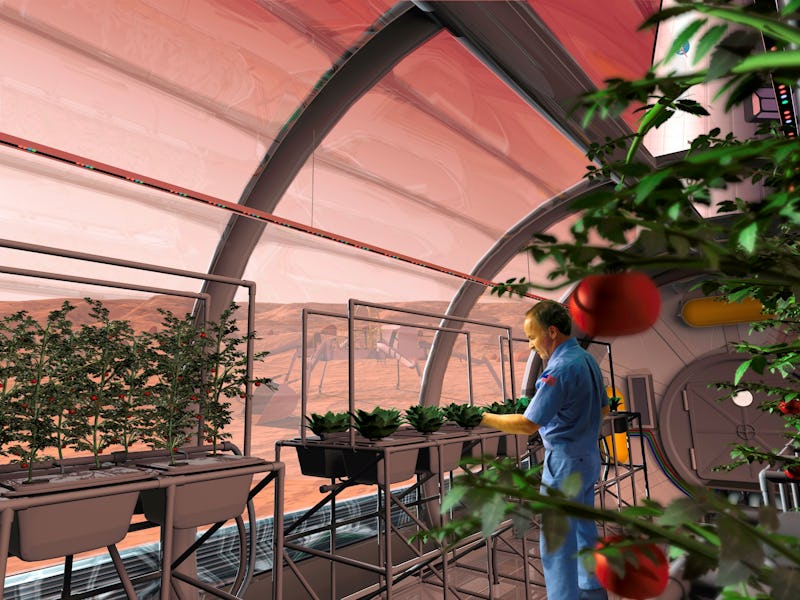Can Missions to Mars Help Us Fight Climate Change on Earth?

A collaboration between two organizations working toward human colonization of Mars could lead to solutions to a more grave problem affecting people here at home — climate change. Two Planet Steel and Food for Mars are researching the separation of iron ore and the ability to grow food from Mars-like sand and dust samples. On Monday, Two Planet Steel announced findings it claimed will influence the industries of clean iron production and sustainable food growth here on Earth.
The end game of the focus on iron production is the ability to make steel on Mars. The two organizations have launched a Kickstarter campaign to fund their upcoming experiments with relogith (the geological term for the loose layer of dust, sand, and rock material; in the case of Mars, this means a lot of iron oxides) and food-growing technology.
The organizations will be working together to investigate not just how to distill iron from regolith, but how to grow food in the mineral-enriched remains. The autonomous rovers that will mine iron ore on Mars could potentially do the same on Earth, for a fraction of the price and carbon footprint. In fact, Two Planet Steel founder R. N. Olsen claims the smelting and reduction process could be completed without producing any carbon emissions at all.
“Transitioning from blast furnaces to clean iron ore reduction will really help climate change,” Olsen said in the news release. “Fortunately, there is a way to implement this transition that will put money and jobs into the US iron and steel industry around the Great Lakes and this US phase can set off a worldwide transition from blast furnaces to clean ore reduction.”

As garbage as 2016 has been in other respects, it’s been a pretty solid year for space science and the journey to Mars. SpaceX in particular has been going so absolutely gangbusters that it’s sometimes easy to forget how many enormous obstacles we still have to overcome before we can send crewed missions to the Red Planet, let alone colonize it. There are the physical effects on the astronauts - their bones and muscles, their eyeballs, plus the all-important issue of radiation exposure - but there’s also the dilemma of how to replenish resources in an environment of such total isolation. Regenerating food and steel would be critical to making such an endeavor sustainable.
The Kickstarter is called “Project Food & Steel: Settling Mars, Saving Earth!” and will be active through the end of the year. It’s aiming to raise at least $20,000.